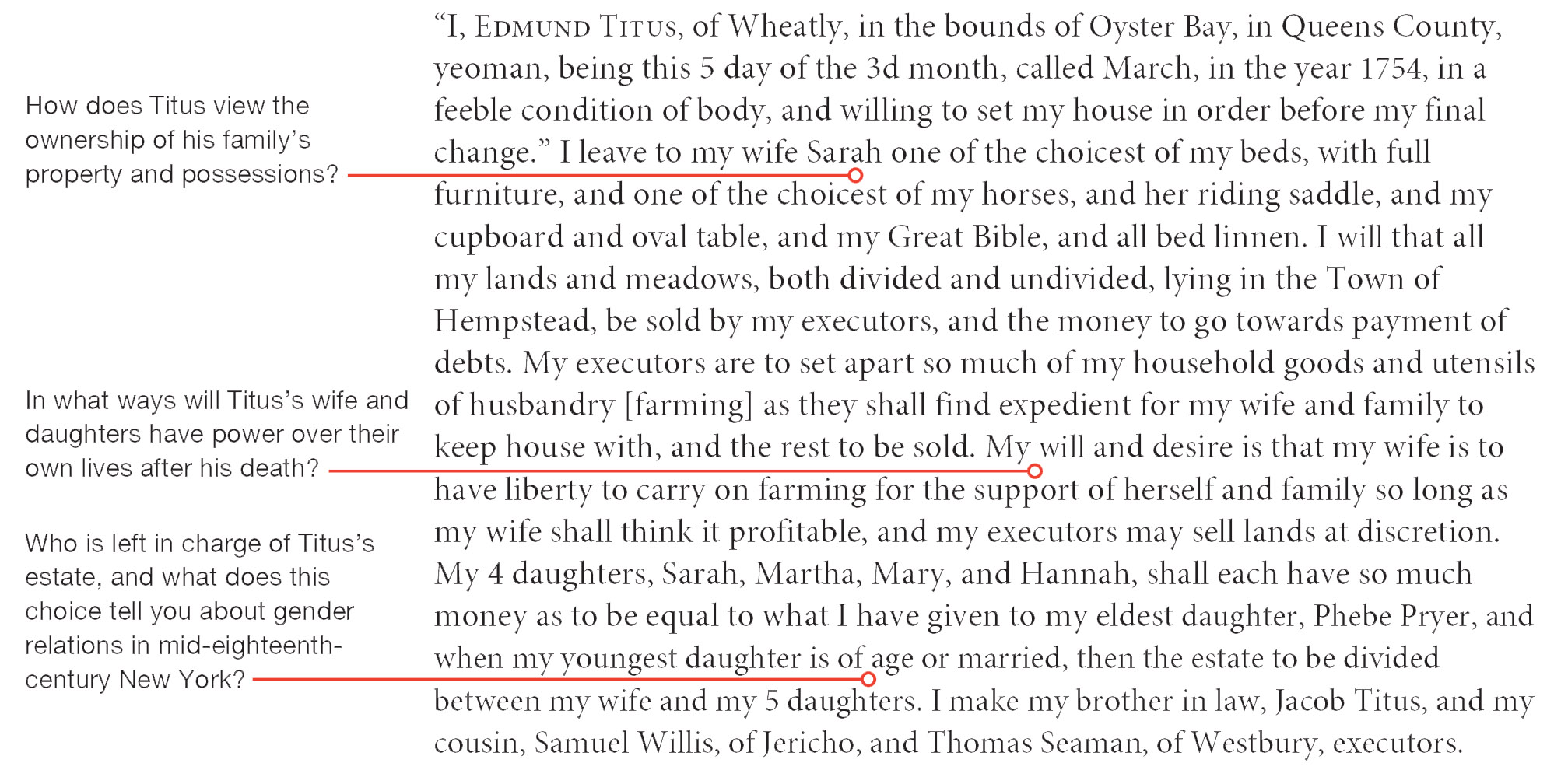Document 4.3 Will of Edmund Titus, Oyster Bay, New York, 1754
Will of Edmund Titus, Oyster Bay, New York, 1754
The treatment of widows indicates the limited rights that colonial women held by the mid-eighteenth century. Wills provide detailed examples of wives’ lack of control over property, even after the death of their husbands. Instead of directly inheriting land, houses, and goods, widows were often placed under the legal protection (and control) of male relatives, whose decisions would regulate their finances and daily lives. The will of New York farmer Edmund Titus shows the customary arrangements of the era.
Explore

Source: “Abstracts of Wills on File in the Surrogate’s Office, City of New York. Vol. V 1754–1760,” in Collections of the New-York Historical Society for the Year 1896 (New York: New-York Historical Society, 1897), 30–31.
Question
4NkUQjn9LGT2uyJRBIeJ7vlXh/bqfzc8uI2D80gIPYKa0h7OPihYleOdOJurpCMYis0o/cjyzRNcn8aRHSrMRRtiy/iUHpq5421YMOLEakiqNv7iJsPQrLElIA2JiOstQuestion
q0g8QBvni0Ovbf743b0WejdSa77Wf0ZVy00CNAnJ6vWCbkY8u0ODWljNrggiCKov0mZu9YY+lXL5wvxfRak4sN3lZIuNax9gKFfP0Vof3T7eTupRyTTkSA5Dzbxo3yETGUBJ/dOh/Z8Bko2JujadXQ==Question
0qRVd7yMWy8vKeLxoArt9JBm6z304BSmIy+ggQZKA3WQ8gvBB35H8/IhqljkgZLA2ERiw1bHeeoZeAK9vTvkn+FGwOhMHEU1f2gqLWc5LlhK9NfYJqki7+d+WFu1dybXR2VduG5GU+/WKaaShhntO0OeYDxhMsqbYmyYp/ibTvBgYp74K8jY776unU2JK5qb4IXAE+redvM=
Put It in Context